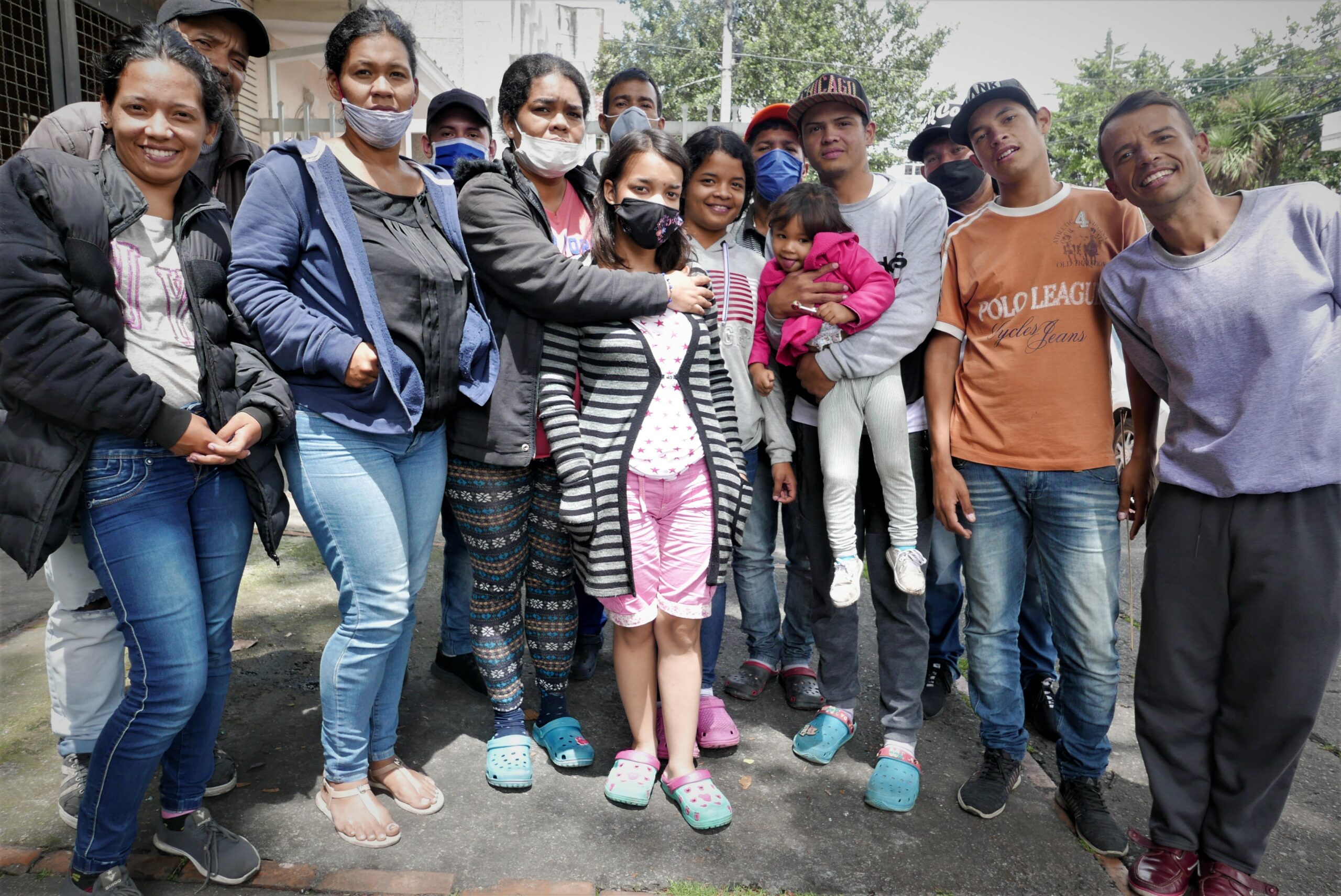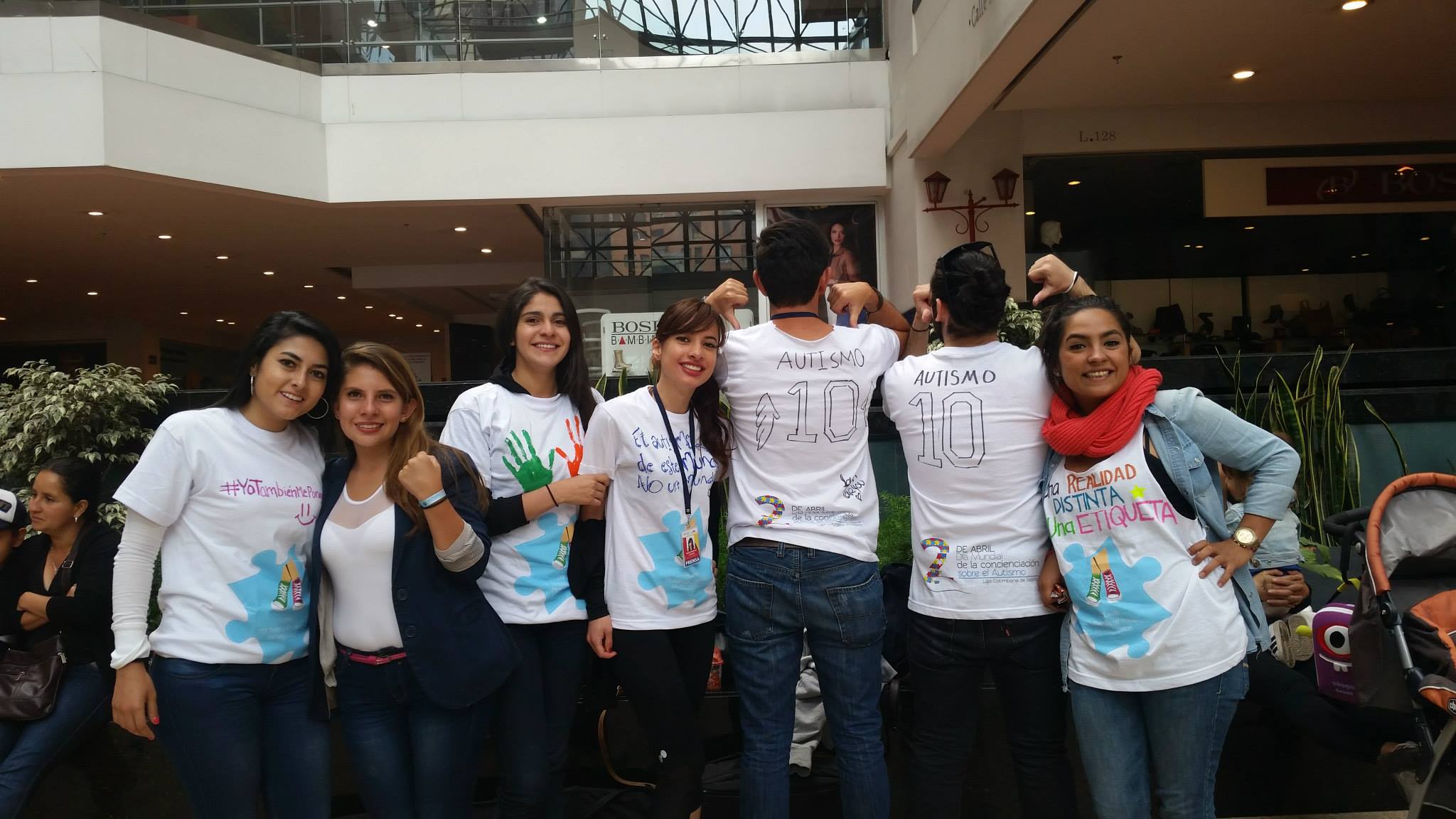Our regular roundup of COVID-19 cases.
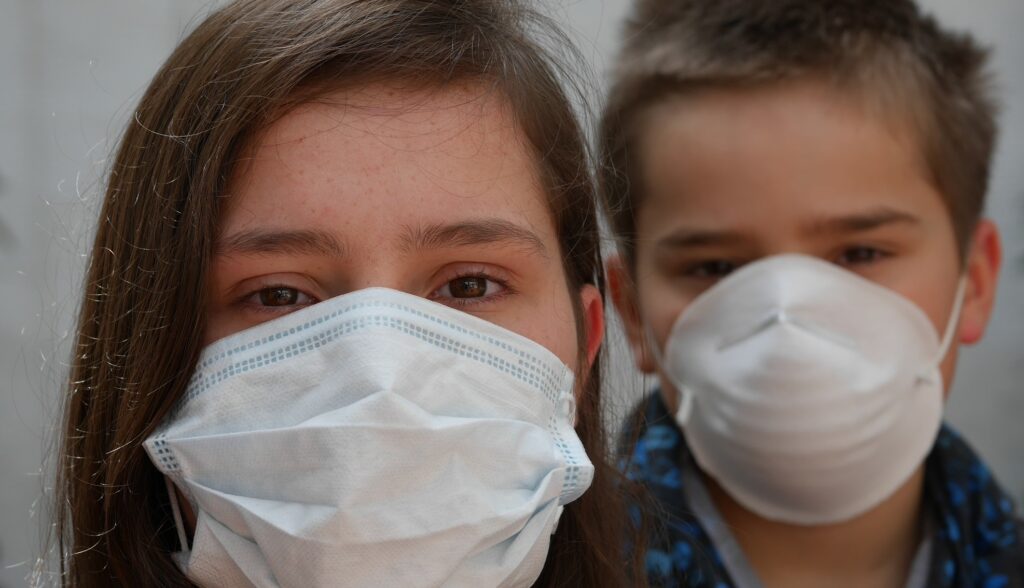
Key points on coronavirus in Colombia:
- Slower increase in new cases, but deaths jump to 25
- Bogotá still the focus with 587 cases
- 26 departments now affected
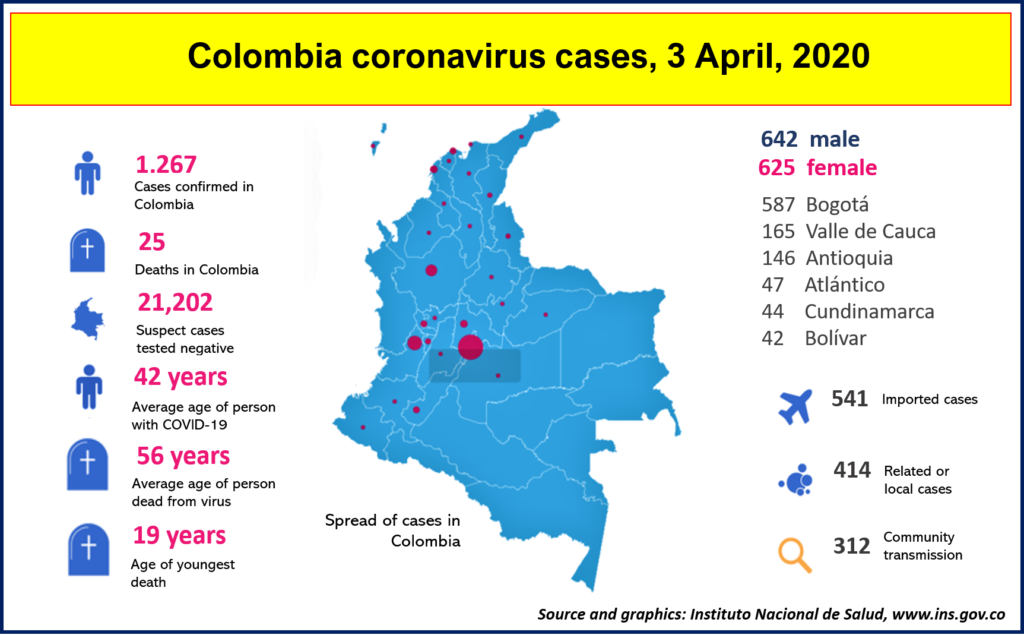
Colombia’s COVID-19 cases seem to be still holding steady even as the viral disease skyrockets around the globe. Today’s stats from the Insituto Nacional de Salud (April 3) do show an increase in deaths – eight since our last Update two day’s ago – but a slight decrease in new cases, which number 202 in the last two days compared to 267 in the previous similar period.
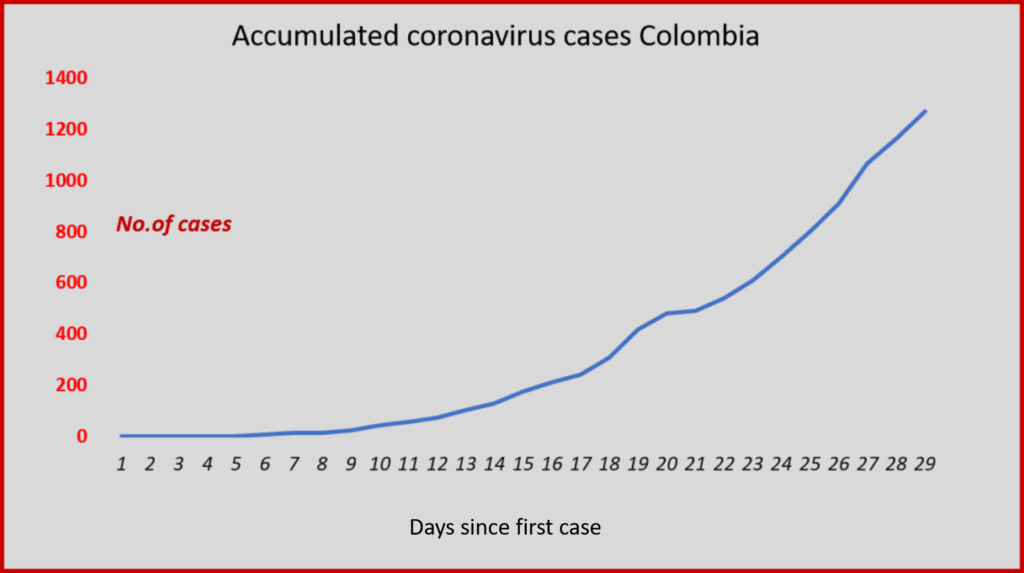
Comparison curve: Colombia v Italy
While we are far too early in the outbreak to draw concrete conclusions – and there can be gaps in the data collection – the graphs below show Colombia registering a lower rate of infection when compared with Italy and even South Korea, previously considered a success story for effective outbreak control.
It’s worth noting that case detection can lag behind actual infection by up to two weeks, and the death of a patient can also lag behind by another two weeks: Hence deaths can still rise even as cases start to slow down.
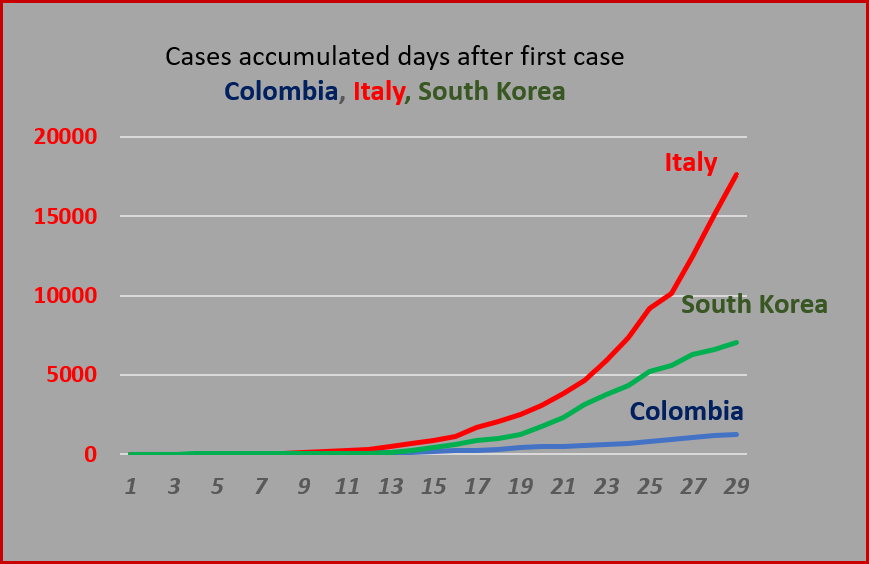
Sources: INS and Worldometer.
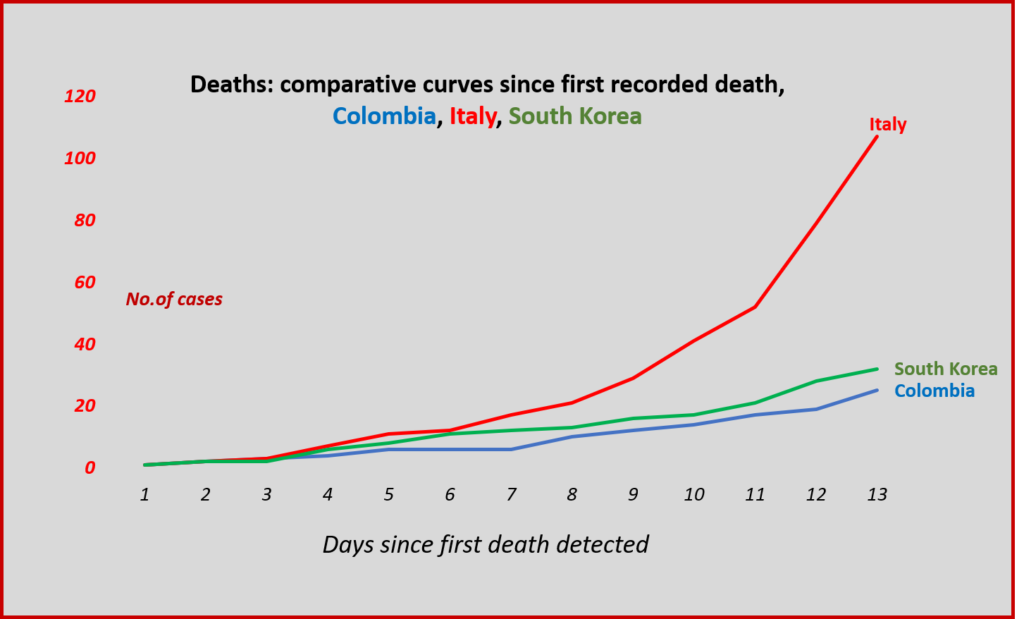
Sources: INS and Worldometer.
Could the BCG jab protect Colombians?
As we’ve mentioned in previous updates, because of the silent spread of the virus there is increasing evidence that early adoption of mass quarantines can slow the outbreak by breaking the chain of infection.
Italy on began regional lockdowns after 200 deaths and 5,000 cases, the U.S. has 7,000 deaths and 270,000 cases – and some states still deciding to quarantine. In comparison Colombia implemented restrictions for much of the country early; before any recorded deaths and less than 200 cases confirmed.
Read all our coverage of the coronavirus outbreak in Colombia
But there might be another medical reason Colombia is seeing less coronavirus cases: BCG vaccinations. Since the early 1970s, around 80% of Colombians have routinely had the BCG anti-tuberculosis jab. And now scientists think it also protects against COVID-19.
A ray of hope? Or more coronavirus fake news?
A draft scientific paper by medical researchers in New York and posted online correlates high-BCG countries – those which historically mass vaccinated – with low COVID-19 cases. And in fact, the BCG has long been known to offer some protection against other respiratory illnesses.
And countries with no universal BCG policy are some of the hardest hit such as Italy and the U.S. So now human trials are now taking place around the world to see if the vaccine can ward off the coronavirus.
If it does work, then having widespread BCG coverage could help Colombians, though so far only those under 50 years young enough to have had the jab. Even then, less virus in the younger population can help prevent spread to the older.
The face mask debate reaches a conclusion
Back in Bogotá, a burning question for many is: should I be wearing a tapaboca? And is the embarrassment factor of looking like you just failed a casting call for ER offset by the slight chance it might protect you from coronavirus?
It’s fair to say that no single COVID-19 issue has divided the world’s experts more than this one.
Performances during quarantine: the show must go on
“STOP BUYING MASKS…they are NOT effective,” the US Surgeon general tweeted in February. And every day the internet brings a new twist: it spreads by air. It can’t be spread by air. It might be spread by air.
Then there is the theory that the amount of virus you ingest or breath in – the ‘initial dose’– can have an impact on how sick you get. Since smaller amounts of virus could mean less chance of dying, then barriers to reduce that initial dose – such as face masks – surely would help.
Now – six whole weeks after the Surgeon General’s directive – the Centre for Disease Control today announced that, yes, we should be wearing face masks.
The U.S. boffins came to this conclusion after three months of coronavirus research found that “the virus can spread between people interacting in close proximity – for example, speaking, coughing, or sneezing”.
To which most of us would say: No shit, Sherlock?.
Luckily, lots of us did figure it out earlier, and many people (and some countries) have taken the sensible precaution to use face masks, and if they can’t find them, make their own.
Squeezebox strategy
During a ten-minute walk to the shops in Teusaquillo today I noted more than 90% of people on the street were wearing face masks of some type, and according to social media some shops are now demanding people to wear one before entering.
Perhaps face masks will form part of the forthcoming “accordion strategy” announced by Colombian leadership this week.
Relax, it’s nothing to do with using Vallenato songs to scare away the bug, but rather a series of squeezing and then easing of quarantines to control localised outbreaks. Less lockdown but coronavirus control could be music to Colombia’s ears.



